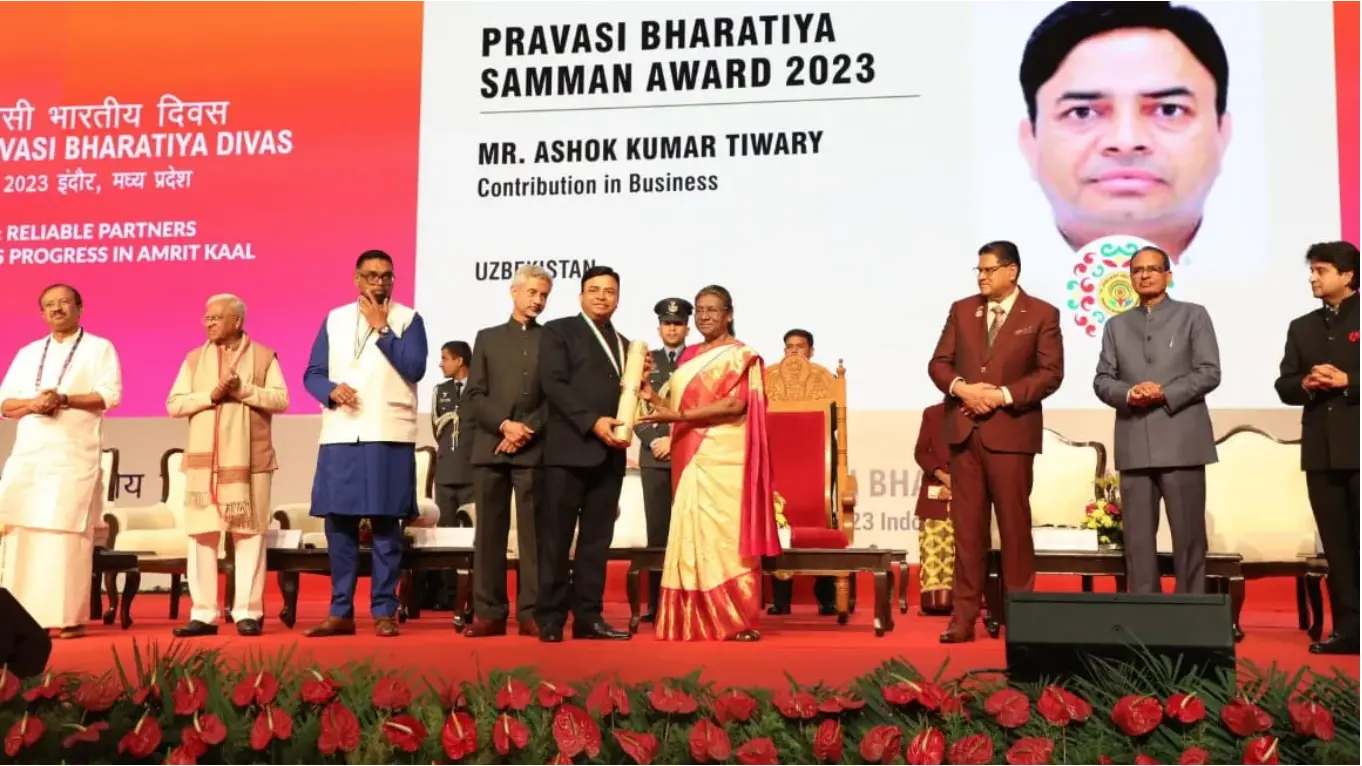The pharmaceutical industry in Uzbekistan has been witnessing rapid changes over the years with increasing investments and development in the sector. Uzbekistan's pharmaceutical industry plans for 2024 include producing $400mn in products and increasing exports to $200mn, as it was disclosed by presidential press service on May 23 this year.
Among the entrepreneurs in this growing sector is Ashok Kumar Tiwari, the general director of Shayana Farm. In a recent interview with Daryo, Tiwari shared his journey of establishing a business in Uzbekistan, highlighting the challenges he faced and the opportunities that continue to arise in this burgeoning industry. When he arrived in Uzbekistan in 2002, Tiwari was immediately struck by the warmth and support he received and decided to settle in Uzbekistan, where he embarked on a new entrepreneurial path.

Despite his background in mechanical engineering, Tiwari found himself drawn to the pharmaceutical industry. He discovered that the Uzbek government was allotting foreign currency for pharmaceutical imports due to the rising demand for medicines in the country. This led him to shift his focus to the pharmaceutical sector, where he saw potential for growth and profitability. One of the biggest challenges faced when starting his pharmaceutical business was the highly controlled environment of Uzbekistan’s economy at the time. Importing goods required extensive government approval, and the process for remitting payments to suppliers was complicated.
Reflecting on the changes in Uzbekistan’s pharmaceutical industry over the last two decades, Tiwari emphasized that the government has made significant reforms. For instance, distributors are now required to obtain Good Distribution Practice (GDP) licenses, while manufacturers must adhere to Good Manufacturing Practice (GMP) standards. These stringent regulations ensure that pharmaceutical products meet high-quality standards, benefiting both businesses and consumers. Tiwari also discussed his decision to establish a production unit for Shayana Farm in Uzbekistan. In 2013, the government introduced various incentives for local manufacturers, including tax rebates and zero-duty on raw material imports.
“The government of Uzbekistan introduced numerous privileges for manufacturers. For instance, it became much easier to convert funds and send money for imported raw materials used in local medicine production. If you were importing raw materials for this purpose, 100% of the payment was convertible without requiring any additional certificates or special permissions. However, this applied only if you had your own production facility” he stated.
This motivated Tiwari to build a pharmaceutical production plant, which was completed in 2017. Shayana Farm specializes in producing antibiotics, painkillers, and anti-cold medications with over 28 products currently available in the Uzbek market. Beyond his business success, Tiwari has contributed significantly to the local community. Shayana Farm employs over 400 people and is actively involved in Corporate Social Responsibility (CSR) initiatives. These include providing school supplies to children from low-income families, donating to orphanages and cancer centers and supporting various charitable causes.

Moreover, in response to India’s urgent need for medical supplies during the Covid – 19 pandemic, Tiwari mobilized the Indian community in Uzbekistan to purchase oxygen concentrators, oximeters and essential medicines to be sent to India. With the support of the Indian Embassy and the Uzbek government, these supplies were quickly sent to India, providing critical aid during a challenging time. In recognition of his contributions, Tiwari was awarded the prestigious Pravasi Bharatiya Samman Award by the President of India, Droupadi Murmu.
However, the pharmaceutical industry in Uzbekistan faced a setback in 2022 when several children tragically died due to contaminated Doc-1 Max medication. This incident, involving an Indian manufacturer, led to stricter regulations in the industry. Tiwari emphasized that while India is a global leader in pharmaceutical production, incidents like these have prompted governments worldwide to enforce tighter controls on manufacturing practices to ensure safety and quality. Despite the challenges, Tiwari remains optimistic that with continued support from the government and adherence to international standards, the sector will continue to grow and provide affordable, high-quality medicines to the people of Uzbekistan and beyond.
Watch the full interview :
Follow Daryo's official Instagram and Twitter pages to keep current on world news.
Comments (0)